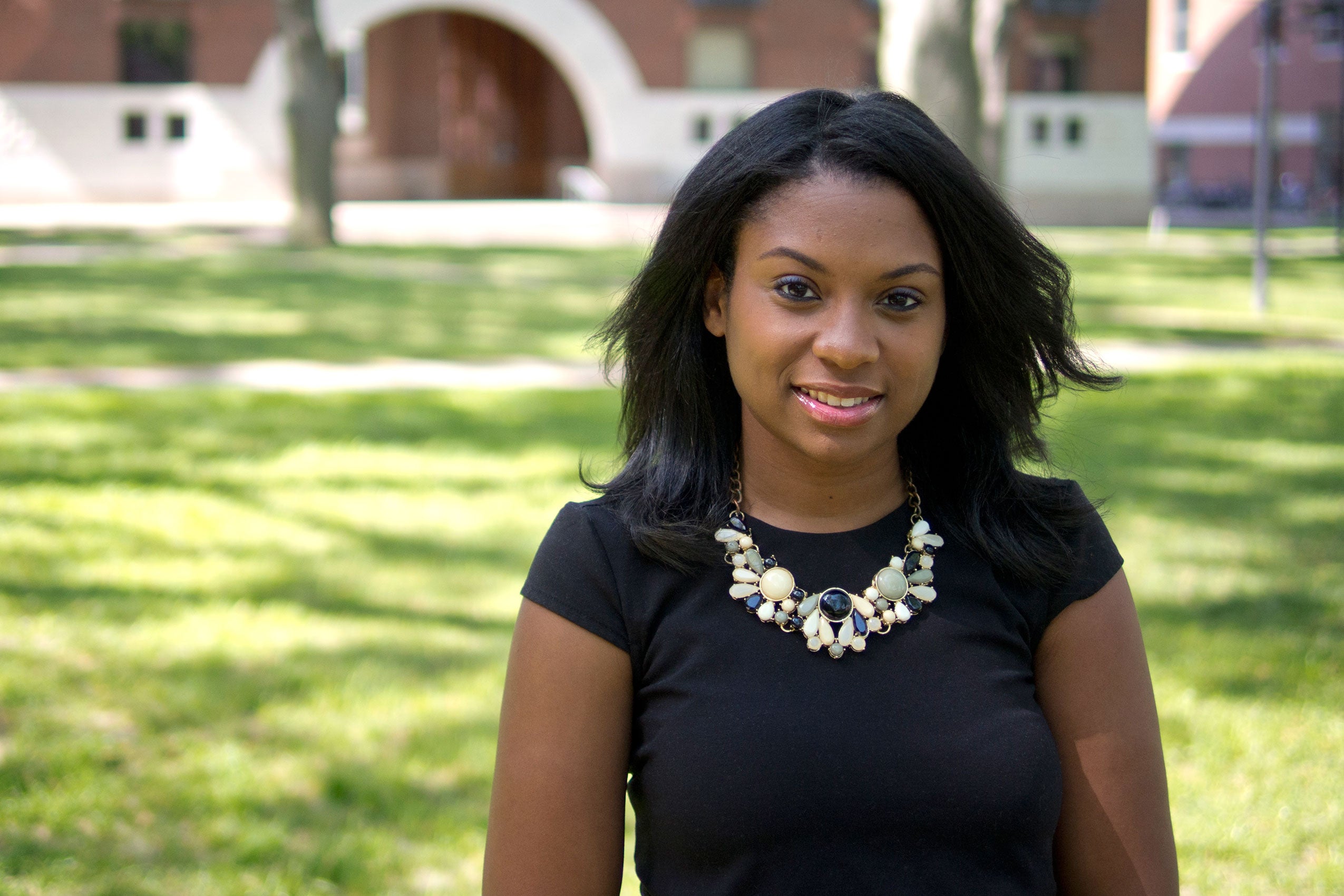In a way, the seeds of Victoria White-Mason’s activism were planted long before she was born. Her grandfather was the first black man to graduate from Duke University, where he faced prejudice and discrimination. Her great-grandfather operated a business in Durham, N.C.’s Hayti district, a thriving African-American community during a time of segregation. Her family history helped raise her awareness of racial injustice and also the strength of black people in the face of adversity.
But it was the events of Ferguson, Mo., last year that inspired her to take action against the injustice she saw and the problems that still linger when it comes to race in America.
“I’ve always cared about these kinds of issues,” she says. “I guess I didn’t know what my place would be in trying to solve them. For Ferguson, it was sort of an awakening for me and I felt like I couldn’t — just for fear of not knowing what to do — not do anything.”
During her final year of law school, after the killing of Michael Brown, White-Mason traveled to Ferguson on behalf of the Ferguson Legal Defense Committee, which worked to ensure the rights of protesters. She was there, at the police station in fact, when the decision came down not to indict the police officer responsible for the shooting. The memory of the shock and trauma she witnessed still remains with her, she says.
White-Mason also sought to bring the lessons of Ferguson back with her to Cambridge when she returned after nearly three weeks away. She helped organize a march on Harvard, mobilizing students from different Harvard schools to converge in Harvard Yard as part of the Black Lives Matter movement. She also helped bring together faculty and students at HLS to discuss how the curriculum could more closely reflect upon issues of social injustice.
“Just to get people a space with which to grieve and to try to find hope, I think that probably was the highlight of my Harvard experience,” she says.
There were other highlights too. HLS gave her a launching point to see the world, including internships in London and Australia and as a representative of the Harvard Black Law Students Association to the Africa Summit in Tanzania; all told, she traveled to 20 countries since she started law school. She also served as co-president of the Harvard Law Documentary Studio, for which she helped produce student films.
Before she immersed herself in the events of Ferguson and the Black Lives Matter movement on campus, White-Mason focused her legal studies and work on the music and entertainment industry. She was on the Committee on Sports and Entertainment Law and did clinical work to help draft contracts for musicians at the Berklee College of Music. During summers, she worked for the Recording Industry Association of America and Sony Music.
A classically trained cellist, White-Mason dreams about starting a music festival focused on social justice issues or a music label that signs artists of substance, perhaps discovering a current-day incarnation of Marvin Gaye singing “What’s Going On.” Or she may seek to advance the work she started in Ferguson. After experiencing so much in the last three years, she is taking the summer to consider her next steps. One thing she is sure of is her ability to withstand challenges, like a childhood with little money and her mother’s death as her HLS application was due. She didn’t believe that she would ever have the chance to go to Harvard, and, as she prepares to graduate, she is steadfast that she will make the most of the opportunity.
“As a kid who grew up with not the most available to her, the fact that with hard work, pushing through it, persevering, I’ve got myself to the point where doors are opened,” says White-Mason. “And that’s all I really need to be able to do some amazing things at some point in my life I’m hoping.”
